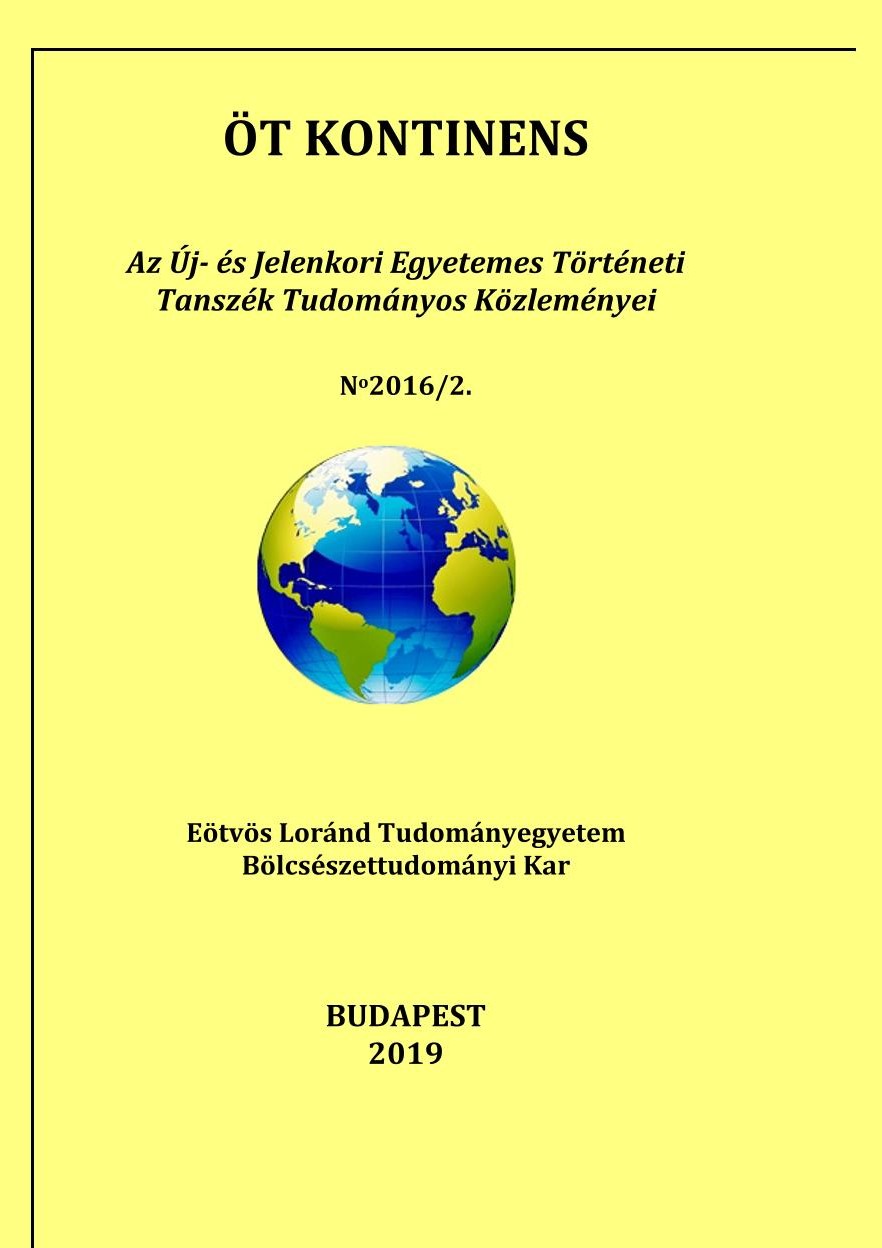La politica estera italiana e l’Ungheria nel passaggio da sistema liberale a fascismo
Italian foreign policy and Hungary in the transition from liberal to fascism
Author(s): Alessandro VagniniSubject(s): History of ideas, Political history, International relations/trade, Interwar Period (1920 - 1939)
Published by: Eötvös Loránd Tudományegyetem, Új-és Jelenkori Egyetemes Történeti Tanszék
Keywords: Italy; Liberalism; Fascism; Danubian Basin; Balkans;
Summary/Abstract: Relations between Italy and Hungary have been constant and complex over time and of particular importance in the interwar period. The Treaty of Trianon represented an epoch-making moment for Hungarian history, a trauma with long and dangerous consequences, which characterized the country’s choices in the following two decades. An analysis of Italian foreign policy in the transition period from Liberalism to Fascism can show whether and how elements of continuity were present in the definition of Italian foreign policy towards Hungary. This paper, through the study of Italian diplomatic documents, intends to clarify whether Mussolini’s arrival in power and the establishment of the Fascist regime have represented a change in the Italian strategic vision with respect to Hungary; whether new elements have been introduced in the management of foreign policy and possibly through which dynamics it is possible to speak of a Fascistization of foreign policy during the first years of the regime.An important element in the analysis of this period is undoubtedly the value that Rome attached to Hungary within the framework of its policy in the Danube-Balkan region. The analysis of these elements can offer an interesting point of view on the dynamics of relations in the Danube-Balkan area in the interwar period.
Journal: ÖT KONTINENS
- Issue Year: 2016
- Issue No: 2
- Page Range: 243-258
- Page Count: 16
- Language: Italian

